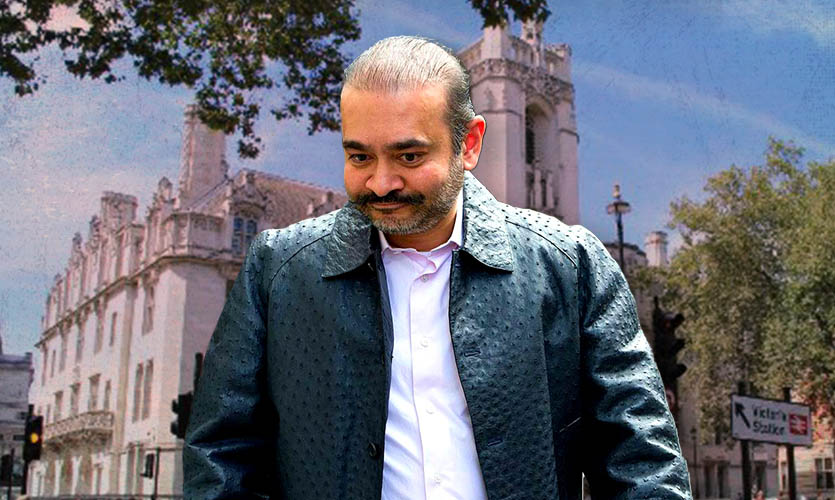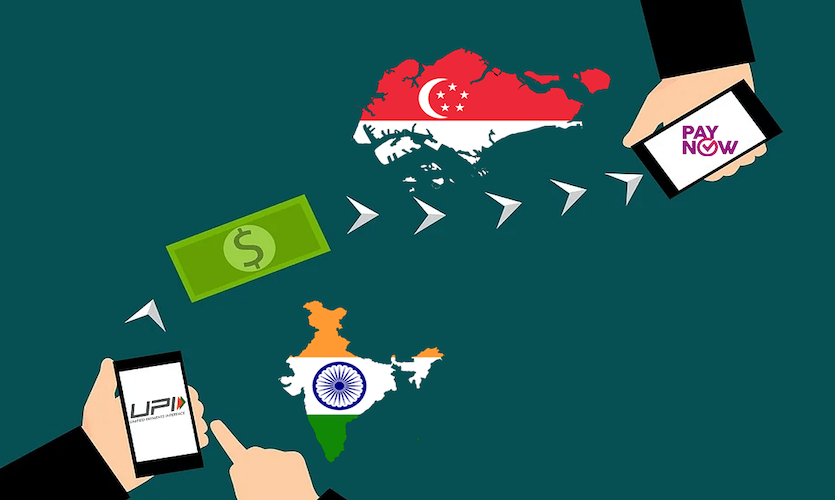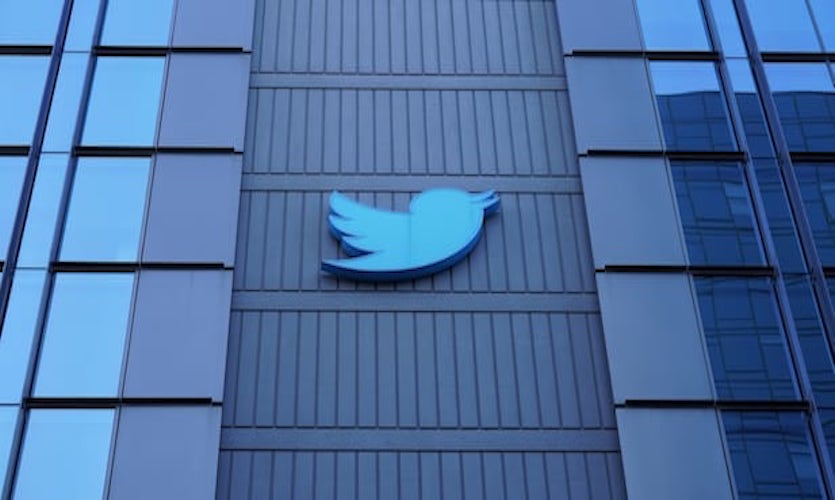In connivance with bank officials, fugitive diamond manufacturer Nirav Modi and his uncle Mehul Choksi orchestrated one of the largest bank frauds in the country, by creating a complex web of deception with fraudulent Letters of Undertaking (LoUs), to siphon off 14,000 crores from the Punjab National Bank.
On Wednesday, the UK bench, presided by Lord Justice Stuart-Smith, denied fugitive Nirav Modi’s request to avoid his extradition as instructed in an earlier order, giving India a decisive win. Nirav Modi appealed to the UK court against the extradition because of allegedly facing mental health issues. According to the judgement handed down on Wednesday by Lord Justice Stuart-Smith and Justice Jay, Nirav Modi’s mental condition and the risk of suicide are not such as to render his extradition unjust or oppressive.
Human rights barrister and head of Trent Chambers, Usha Sood, said that as he has lost this appeal hearing, Nirav Modi can approach the Supreme Court on a point of law of public importance, to be applied to the Supreme Court against the UK High Court’s decision within 14 days of its verdict.
“Once the court of appeal has rejected Mr Modi’s appeal then only recourse is to try and appeal to the Supreme Court on the grounds of the court overlooking a point of public importance. This is extremely difficult to surmount. In most cases lawyers do not advise this route,” said Sood, speaking to India Today.
“There is also a possibility of approaching the European Court of Human Rights to try and apply for an injunction against the UK government on the basis of his fundamental human right being at stake,” she added.
The fraud led to greater scrutiny of the nation’s banking activities and a political brawl. The Letter of Understanding (LoU) is a type of assurance given by a bank to an organisation for obtaining short-term credit from any Indian lender’s overseas branch. These LoUs are issued for business or commercial transactions, rather than typical retail transactions. Companies connected to Nirav Modi bought these LoUs from the PNB’s Brady House office in Mumbai, but it is claimed that the money was syphoned off by some corrupt PNB workers instead of being used for legitimate business operations.
In March 2011, the Brady House branch of PNB gave Nirav Modi his first LoU. Over the following 74 months, he was able to secure 1,212 additional such promises. 53 legitimate (non-fraudulent) LoUs were also granted to the Nirav Modi Group during the course of these six years, the first in March 2011 and the last in November 2017. However, according to investigative authorities, the LoUs were later mostly used to launder money. Days before a complaint was filed against him and his associates, Nirav Modi left India in 2018 to avoid the law.
The PNB discovered the fraud on January 25, 2018, and on January 29, it reported it to the Reserve Bank of India (RBI). A criminal complaint requesting the Central Bureau of Investigation (CBI) to file an FIR was also made on that day. On February 7, the same day that a new CBI complaint was made, another fraud report was sent to the RBI.
The CBI received an FIR on February 13, 2018, against Chandri Paper & Allied Products Pvt Ltd, Gitanjali Group, and Nirav Modi Group. Additionally, the Enforcement Directorate received a complaint. The following day, stock exchanges were alerted.
In the lawsuit, the PNB said that Nirav Modi and businesses associated with him conspired with some of its employees, including former deputy general manager Gokulnath Shetty who was assigned to the Mumbai branch’s foreign exchange department. They supposedly obtained loans from the overseas offices of Indian banks by illegally acquiring guarantees worth $1.77 billion, or Rs 11,400 crores, stating that they needed the money to import pearls.
Following his arrest in March 2019, Nirav Modi filed an extradition request at the Westminster Magistrates Court (district court). Before District Judge Goozee, the hearing was conducted over two weeks in May and September 2020. Modi’s extradition was ordered on February 25, 2021, after closing submissions were made in January 2021. On April 15, 2021, the Secretary of state approved the extradition.
Nirav Modi, 51, who has been detained in Wandsworth prison since March 2019, requested permission to appeal the district judge’s decision to order his extradition, on August 9, 2021.
In response to this, the UK high court decision on Wednesday stated:
“The risk of deterioration of the underlying depression and the risk of suicide cannot be considered in a vacuum. On the basis of the assurances that the GoI (Government of India) has given, we accept that there will be suitable medical provisions and an appropriate plan in place for the management and medical care of Modi, which will be provided in the knowledge that he is a suicide risk (i.e. a person who, in the absence of preventative measures, may or will attempt suicide and will or may succeed). The evidence does not support a finding that the assured steps will eliminate the risk that Mr Modi will commit suicide altogether, still less the risk that he will attempt to do so.”
Nirav Modi “has so far displayed no features of psychotic illness”, according to the judgement. In addition, it was noted that despite Modi’s “persistent suicidal ideation, he has neither attempted suicide nor deliberate self-harm nor disclosed plans to do so, except in the most vague and general way”. The judgement further stated, “The steps taken to render Barrack 12 safe and to ensure that there is effectively constant monitoring operate to reduce both the risk of attempted suicide and the prospect of suicide being committed.”
In addition, they concluded that there is strong evidence to believe that the Indian government will take its assurances seriously given the importance of the case and the fact that Modi has been imprisoned at Wandsworth Prison in south-west London since his arrest in March 2019. Because of this, Modi’s care is likely to be under constant “heightened scrutiny”. While Modi can appeal the UK High Court’s ruling to the Supreme Court within 14 days, the former must certify that the matter contains a legal issue of general public concern in order for a fresh appeal to be brought to the latter, which entails a high bar.
The court’s ruling mentions three separate criminal cases against the wanted diamond trader in India: (i) a CBI case involving fraud on the PNB that resulted in losses of more than GBP 700 million; (ii) an ED case involving the alleged laundering of those proceeds; and, (iii) the third set of criminal cases involving alleged interference with evidence and witnesses in the CBI proceedings.
Nirav Modi may still be able to get an order from the European Court of Human Rights via the so-called Rule 39 injunction (ECHR). Therefore, there is still work to be done before the diamantaire can be returned to India, where he will be detained in Mumbai’s Arthur Road Jail and put on trial for fraud and money laundering in the PNB loan scam case.
Read more: What Does Musk’s Twitter Acquisition Really Mean For Free Speech?









